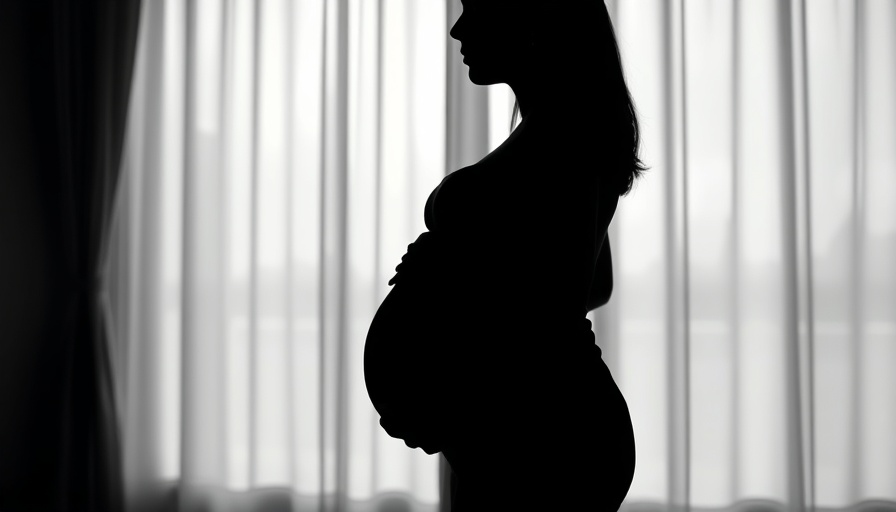
The Unseen Risks: Pregnancy and Brain Arteriovenous Malformations
Recent research unveiled at the Society of NeuroInterventional Surgery's annual meeting highlights alarming findings about the intersection of pregnancy and brain health, particularly for women with arteriovenous malformations (AVMs). These abnormal blood vessel connections present serious health risks, and now it seems that pregnancy can significantly worsen those risks, particularly the likelihood of rupture, which can lead to severe brain injury or death.
The Study Behind the Findings
The study, conducted by experts at the University of Mississippi Medical Center, sifted through 5,609 existing journal articles to identify 15 suitable for statistical analysis. They aimed to understand the rupture risks associated with AVMs, brain aneurysms, and cavernous malformations during pregnancy. Although the presence of pregnancy did not drastically change rupture risk for women with brain aneurysms or cavernous malformations, those with AVMs experienced a higher incidence of ruptures than their non-pregnant counterparts. This significant finding raises important questions about how pregnancy-related physiological changes, such as increased blood volume and hormonal shifts, contribute to these health risks.
Understanding the Condition
Arteriovenous malformations are complex and can disrupt normal brain function. They can lead to bleeding in the brain, causing strokes and other life-threatening complications. As a result, understanding how pregnancy impacts these conditions is crucial not just for medical professionals but also for women considering pregnancy with AVMs. With increased blood pressure during pregnancy, the risks associated with AVMs may magnify, necessitating comprehensive care planning from healthcare providers.
The Importance of Awareness
This study highlights a pressing need for further research into the effects of pregnancy on brain health, particularly concerning conditions that predispose women to serious health complications. As medical student Evan Bowen pointed out, understanding the underlying causes of these heightened risks can help doctors devise better treatment protocols for pregnant women with AVMs. This knowledge becomes particularly valuable as healthcare providers aim to balance care between the health of the mother and the developing fetus.
Future Predictions and Implications for Healthcare
As the medical community interprets and integrates these findings, it will likely lead to enhanced screening and monitoring protocols for pregnant women diagnosed with AVMs. This might result in collaborative care models where obstetricians and neurologists work together to mitigate potential risks. Hospitals may begin routine education sessions about recognizing symptoms and emergency response measures for pregnant women with such conditions.
Coping With Complications: A Community Approach
Moreover, fostering community health discussions around these conditions can empower women and their families. Creating awareness campaigns and support resources can ensure that those affected understand the seriousness of AVMs and their potential risks when pregnant. Wellness centers can serve as vital reservoirs of information, offering seminars and access to healthcare professionals specialized in both maternal and brain health.
Healthcare and Wellness Products: Essential Support Tools
For women diagnosed with AVMs, leveraging health and wellness products could play a supportive role in maintaining optimal health during pregnancy. Knowledge of dietary supplements, fitness strategies tailored to limit stress on the vascular system, and alternative medicine options can empower women with the knowledge necessary for informed decisions about their health. Proper education can result in better outcomes and healthier pregnancies.
Concluding Thoughts
The revelation that pregnancy can complicate existing health issues tied to arteriovenous malformations underscores the need for ongoing research and heightened awareness. For women with these conditions, understanding how pregnancy affects their health is critical. The medical community has a responsibility to ensure that patients receive the most informed, specialized care possible. If you or someone you know is navigating similar health challenges, seeking both traditional and alternative medicine approaches can provide additional pathways toward health and wellness management.
Ultimately, as our understanding of these risk factors evolves, so too must our strategies for addressing them. Continued research and advocacy will pave the way for better health outcomes for mothers and their children in the face of potentially life-threatening conditions.
 Add Element
Add Element  Add Row
Add Row 




Write A Comment